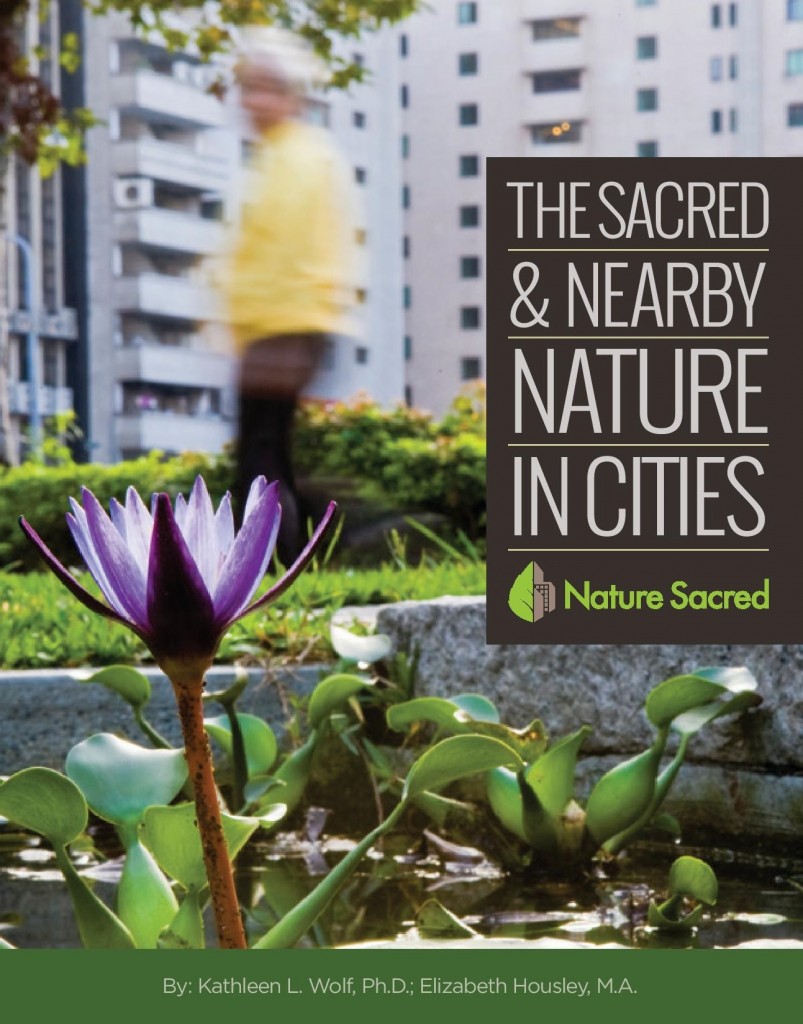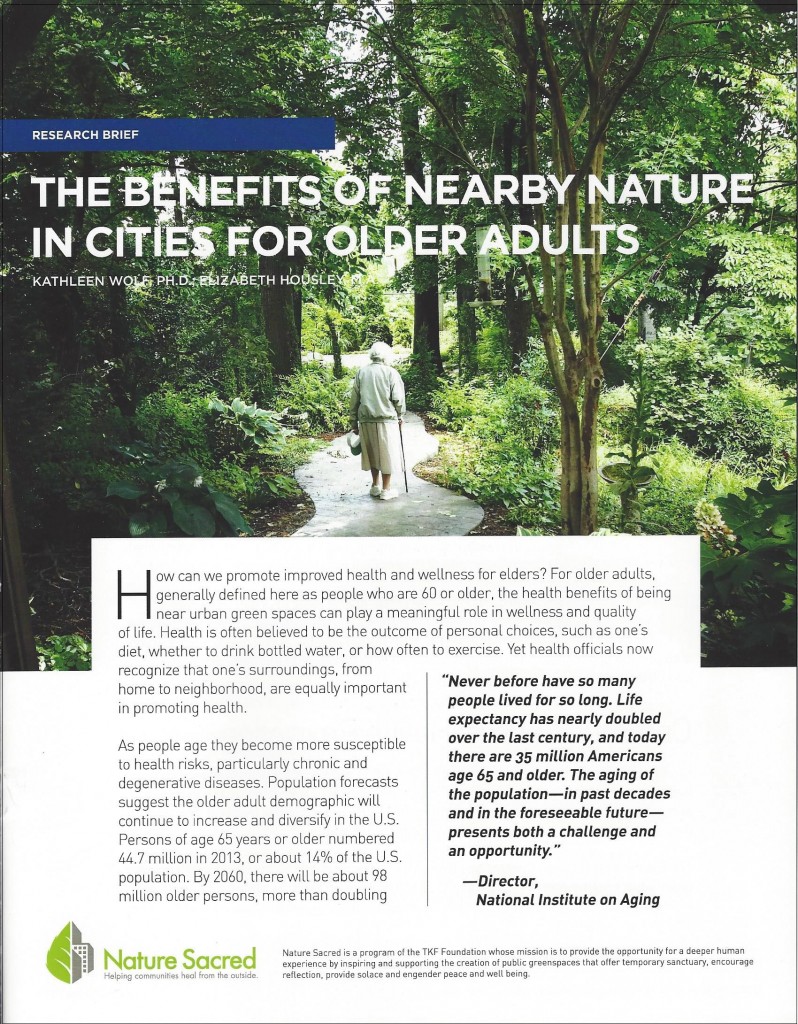How do we build more contemplative spaces in cities?
The global population is increasingly urban. More and more people are moving to cities for opportunities and resources, each region facing different challenges. City budgets are tight and communities have many needs. In the U.S. the ‘baby boomer’ population is aging into retirement. Globally, demands to compete and succeed in professional and personal lives can lead to mental and physical health decline. Inequality can hinder access to healthy places to live and thrive. Across these situations and demographics, a quiet moment in a nature space provides health benefits, sometimes extending into the long-term. Despite the known benefits, funding for green spaces in the midst of these needs can be challenging.
 Over the past two decades, the TKF Foundation has funded a collection of smaller well-designed gardens (called Open Spaces Sacred Spaces or OSSPs) that offer visitors quiet time-outs from their busy lives. Users report a sense of calm, mindfulness, and healing when in the spaces. Small green spaces such as OSSPs might be tucked into existing parks, but can also be co-designed into higher density residential areas, as well as transit systems, streetscapes, and green infrastructure. A case can be made for the affordability and necessity of small green spaces in cities.
Over the past two decades, the TKF Foundation has funded a collection of smaller well-designed gardens (called Open Spaces Sacred Spaces or OSSPs) that offer visitors quiet time-outs from their busy lives. Users report a sense of calm, mindfulness, and healing when in the spaces. Small green spaces such as OSSPs might be tucked into existing parks, but can also be co-designed into higher density residential areas, as well as transit systems, streetscapes, and green infrastructure. A case can be made for the affordability and necessity of small green spaces in cities.
In support of this case, a collection of five research briefs, written for a wide range of readership and beautifully designed, is now available in the ‘Discoveries’ section on NatureSacred.org (www.naturesacred.org/natures-impact/research-briefs/).

These briefs summarize current research knowledge about the benefits of time in nature spaces that offer respite, peace and contemplative moments. Each brief covers different but interrelated topics- Elders, Civic sacred, Wellness, Stress, and Environmental equality. Each is designed as a visually captivating resource, offering a framework of key topics concerning nature and health, with support of a summary of scholarly or research sources. We invite you to read and share this collection with others.
